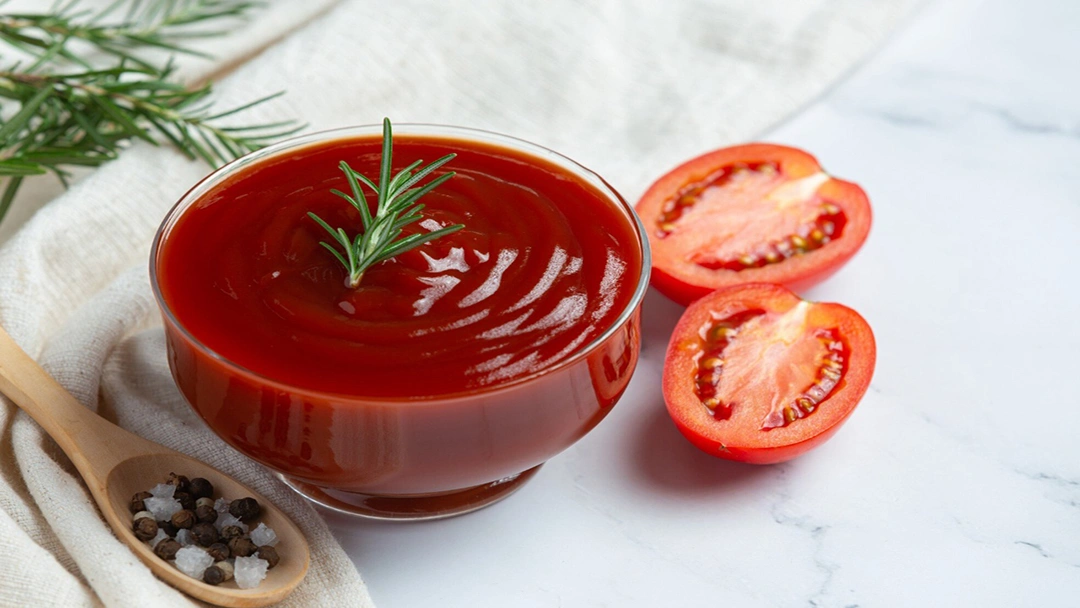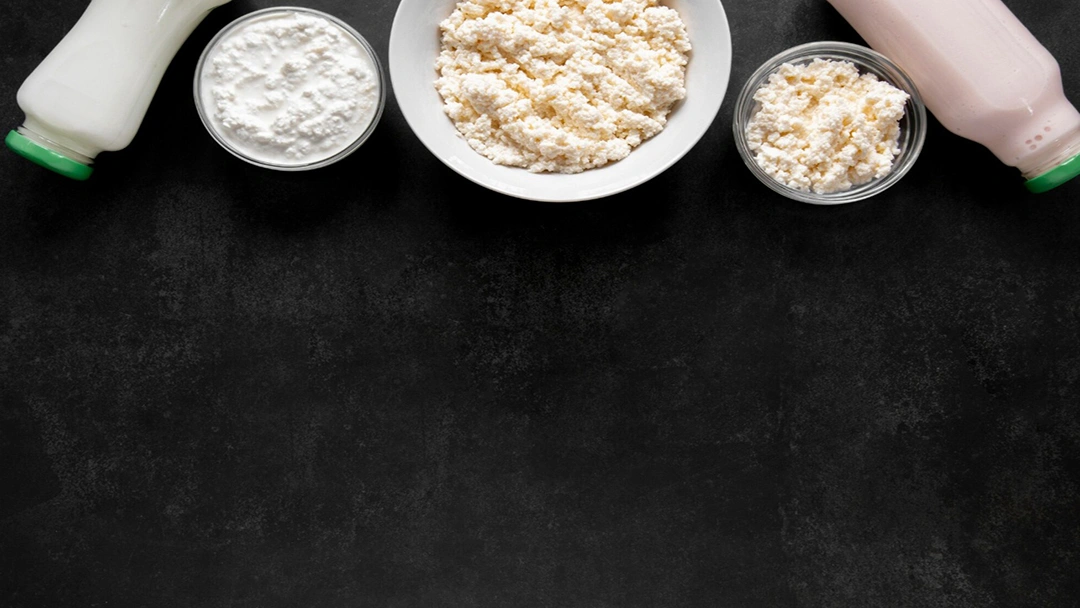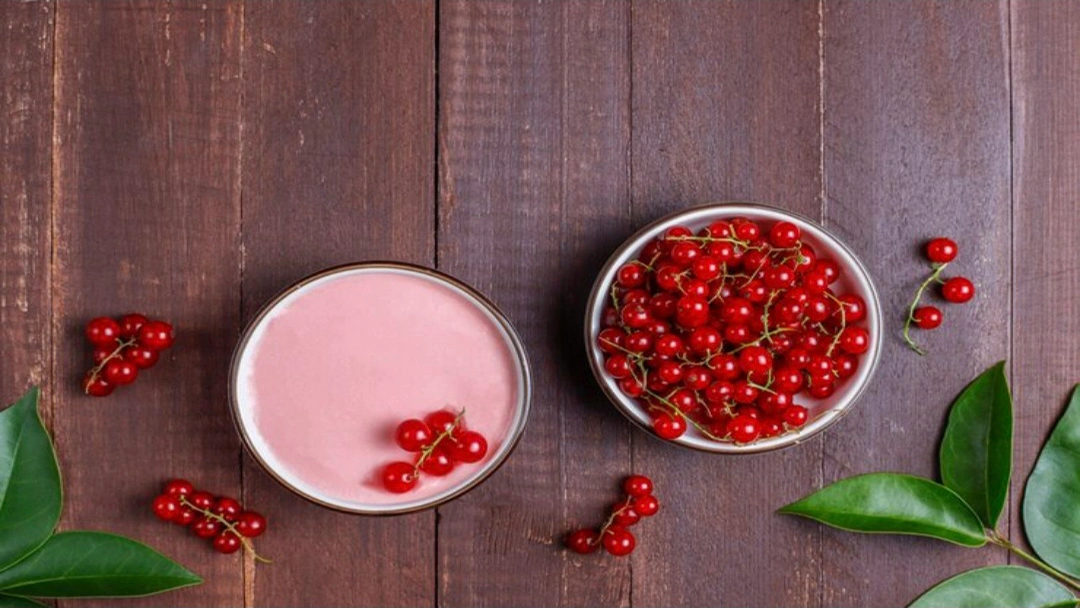Is Eating Beef Only Effective For Weight Loss?
The short answer is yes, but the Lion Diet is not a miracle cure for weight loss. It is an eating plan that can help you heal inflammation, but it doesn't work overnight.
This way of eating is designed to help you become healthier overall, eliminating toxins and anti-nutrients. It will allow your body to recover from decades of external poisons.
Learn More: Carnivore Diet Before and After Photos: Carnivore Diet Results
Lion Diet Benefits
The Lion Diet can improve your health in the following ways if only done properly under the supervision of coaches and experts after consulting your physician.
Wight Loss
The Lion Diet can boost weight loss due to its simplicity and restriction to only ruminant meat, salt, and water.
By eliminating carbohydrates, sugar, and processed foods, the human body shifts into a fat-burning state (ketosis), using fat as its main source of energy.
Protein and fat from ruminant meats are also very satiating, which helps reduce hunger and prevent overeating [1].
The lack of high-calorie or addictive foods, like bread, sweets, and snacks, naturally leads to a caloric deficit, promoting gradual and sustained weight loss [2].
[cta-meetings]
Positive Effects on Skin
Many followers of the Lion Diet report clearer skin, a reduction in acne, eczema, and other dermatological issues.
This improvement is because of eliminating common triggers, such as dairy, processed carbohydrates, seed oils, and plant-based allergens.
By consuming only nutritious ruminant meat, the body receives essential fatty acids, collagen, and amino acids that support skin repair and barrier function.
This diet also stabilizes insulin and hormone levels, which can further reduce skin conditions caused by inflammation [3].
Learn More: 30-Day Carnivore Diet Meal Plan PDF (Downloadable File)
Reduced Inflammation
Ruminant meat provides bioavailable nutrients, such as zinc, iron, B vitamins, and omega-3 fatty acids that support immune balance and tissue repair.
At the same time, excluding inflammatory plant compounds, like lectins, oxalates, and gluten, and processed foods helps reduce systemic inflammation [4].
Many people report decreased joint pain, headaches, and fatigue within weeks of following the Lion Diet. This anti-inflammatory effect comes from both nutrient optimization and the removal of potential irritants [5].
Improved Rheumatoid Arthritis
Some reports and small-scale observations show that people with autoimmune conditions like rheumatoid arthritis experience significant relief on the Lion Diet.
The theory is that autoimmune flare-ups are triggered or worsened by plant compounds or inflammatory foods [6] [7].
By cutting the diet down to the simplest possible form, ruminant meat and salt, the immune system is less triggered, allowing inflammation in joints and tissues to subside.
Nutrients like carnosine, creatine, and zinc in red meat also help tissue healing and immune function [8].
Learn More: Ketovore Diet: Pros and Cons, Food List, and 7-Day Meal Plan
Lion Diet Improves Autoimmune Conditions
A recent survey conducted among Lion Diet followers found that 92% reported significant relief from autoimmune symptoms such as joint pain and skin issues within six weeks.
Improved Insulin Sensitivity
Since the Lion Diet is effectively zero-carb, insulin levels remain consistently low. This reduction in glucose and insulin spikes helps the body regain sensitivity to insulin over time, improving metabolic health [9].
Many people find that fasting becomes easier, cravings decline, and energy levels stabilize. For individuals with insulin resistance or early-stage type 2 diabetes, this shift can help lower blood sugar and improve markers of metabolic syndrome [10].
Eliminated Plant Toxins, Including Oxalates
Plants naturally produce chemical compounds, such as oxalates, lectins, saponins, and phytates, as a defense mechanism against predators.
These compounds can cause digestive distress, joint pain, or mineral deficiencies in sensitive individuals [11].
The Lion Diet completely removes these potential irritants, giving the body a chance to detox from their effects.
Over time, some followers report relief from symptoms like joint pain, bloating, or brain fog that can come from plant toxins [12].
Learn More: The Low-Carb Diet: Your Free Beginner’s Guide
Improved Gut Microbiome and Digestive Health
Despite traditional beliefs that fiber is necessary for gut health, many Lion Diet followers report better digestion, less bloating, and regular bowel movements.
By removing plant fibers and complex carbohydrates, the gut lining can heal from inflammation or bacterial overgrowth caused by fermentable plant matter.
The highly bioavailable nutrients in ruminant meat are easily absorbed, reducing waste and digestive strain [13].
While research is still limited, personal reports suggest that simplifying the gut environment can improve microbial balance and digestion.
Although the Lion Diet can bring all these health benefits, it can come with some disadvantages.
[cta-meal-plan]
Lion Diet Side Effects
While these side effects are temporary and not common in everybody, since the Lion Diet is a short-term diet, it is wise to learn about the possible side effects and be prepared.
Nutrient Deficiencies
Because the Lion Diet excludes all foods except ruminant meat, salt, and water, it can lead to deficiencies in certain vitamins and minerals over time. Possible deficiencies include vitamin C, vitamin K, magnesium, manganese, and fiber [14].
Although ruminant meat contains trace amounts of vitamin C, it is not enough to fully prevent deficiency for everyone, especially if the meat is overcooked.
Lack of variety may also affect long-term gut health and immune function. So, it is important to do a Lion Diet for a short time, not as a lifestyle [15].
Constipation or Digestive Changes
When transitioning to a zero-fiber diet, many people experience constipation, hard stools, or changes in bowel frequency. Others may have the opposite issue, loose stools or diarrhea during the first few weeks [16].
The digestive system adapts over time, but some people may continue to experience discomfort or slow digestion without dietary fiber [17].
[cta-gocarnivore-plans]
Electrolyte Imbalance
The initial loss of carbohydrates can lead to rapid water and sodium loss, causing electrolyte imbalances, which cause Carnivore Flu, with symptoms like fatigue, dizziness, muscle cramps, or headaches [18].
Consuming enough salt and fluids can help, but some people still struggle with maintaining balance [19].
Learn More: Carnivore Electrolytes: Why They Matter & How to Source Them
Increased Cholesterol or Lipid Changes
For some individuals, a diet very high in animal fat can increase LDL cholesterol or change other factors in blood lipids [20].
While some report better HDL and triglyceride ratios, others experience concerning rises in total cholesterol levels [21].
So, if you have cardiovascular risk factors, you should monitor your blood work regularly and go on this diet under the supervision of your doctor. Learn How to Lower Cholesterol on Carnivore Diet? 10 Approved Ways.
Low Energy or Adaptation Period
During the first few weeks, many experience fatigue, brain fog, irritability, or poor physical performance as the body transitions from using glucose to fat for fuel [23].
Adaptation can take anywhere from a few days to several weeks, and not everyone adjusts well. But if you have experienced a Carnivore Diet, you are less likely to face big challenges [24].
Lion Diet Improves Anxiety and Depression
According to a study published in the Journal of Affective Disorders, 85% of participants adhering to a strict Lion Diet experienced improvements in anxiety and depression symptoms over a three-month period.
Social and Lifestyle Challenges
The Lion Diet is extremely restrictive, which can make it difficult to eat socially, travel, or maintain variety. Some people also experience food boredom, cravings, or emotional frustration from the lack of choice.
These factors can make it challenging to stick to the diet and increase the risk of relapse or binge eating afterward.
Potential Kidney Strain
High protein intake can increase the kidneys’ workload, especially for people with preexisting kidney conditions. Although healthy individuals usually tolerate it well, those with kidney disease or risk factors should be cautious [25] [26].
Learn More: Carnivore Diet Side Effects and How to Avoid Them
[cta-meetings]
What About the Long-Term Safety of the Lion Diet?
While red meat has been slandered in the media, correlated to heart disease and increased mortality. The opposite is true; red meat has the most nutrients your body requires for energy and metabolism [27] [28].
Since the USDA published the food guidelines in the 1980s, we have seen diabetes, obesity, and heart disease skyrocket. While at the same time, meat consumption has decreased [29].
From an evolutionary perspective, we survived predominantly on an animal-based diet. The growth of big agriculture and pharma has destroyed our physical and mental health. The choice is your long-term; eat for health!
Contrary to what many may think, eating more meat can be beneficial for healthy individuals for different reasons.
Eating More Beef Can Benefit You!
Eating more meat can help improve your health because it contains various nutrients, including [30]:
- Protein: Beef provides complete protein, all eight essential amino acids, that can help build muscle mass and support normal growth in children, teens, and pregnant or breastfeeding women.
- Iron: It helps carry oxygen throughout the body. Iron deficiency can lead to fatigue and weakness. You can get about 3 milligrams of iron per 3-ounce serving of cooked 90% lean ground beef.
- Vitamin B12: It helps maintain nerve cells, red blood cells, DNA synthesis, energy production from fats and carbohydrates, as well as proper nervous system function.
- Zinc: It plays an essential role in immune function. It can also support wound healing by helping heal wounds faster.
- Vitamin B6: It helps regulate homocysteine levels, an amino acid derived from methionine, which can prevent heart disease if kept at normal levels.
Learn More: The Keto Diet: A Free Guide to Lose Weight & Improve Health
[cta-meal-plan]
How to Start the Lion Diet?
Eat more beef. Grass-fed and grain-fed, the type of feed doesn't matter all that much, unless you are concerned about sustainability or ethics.
What does matter is that you eat more red meat. Steak is great for this, but I recommend fatty cuts like short ribs and brisket.
Choose the right kind of steak, rib eyes, and porterhouse are excellent options, and typically have a 1:1 protein ratio.
1 Day Sample Lion Diet Meal Plan
This is an easy starting point with a 1 Day Lion Diet plan to see if you like it. In the following, you can also find a complete 30 Day Lion Diet Menu.
- Breakfast: 80/20 ground beef
- Lunch: Boneless short ribs
- Dinner: Veal cutlets
[cta-gocarnivore-plans]
7 Day Lion Diet Meal Plan
If you want to take it to the next level, try this Lion Diet menu, with 2 meals a day, with minimal cooking. Cooking in bulk provides plenty of leftovers to enjoy the rest of the week. This is also an excellent opportunity to introduce some intermittent fasting.
| Day | 1st Meal | 2nd Meal |
|---|
| Monday |
Rib eye |
Homemade lamb sausages |
| Tuesday |
Sous vide beef brisket |
Beef sliders |
| Wednesday |
Beef burgers |
Leftover brisket |
| Thursday |
Lamb meatballs |
Lamb roast |
| Friday |
Leftover roast |
Veal cutlets |
| Saturday |
Leftover meatballs |
Ground beef |
| Sunday |
Leftover ground beef |
Lamb cutlets |
30-Day Lion Diet Meal Plan
This 30-day meal plan is designed for those who want to commit to 30 days or even 60 days. This Lion Diet menu is simple and flexible. Feel free to move the meals around to suit your lifestyle.
You can shed many lbs thanks to experts and fellow Carnivores supporting you with success stories, private sessions, workshops, coaching, and planning. Don’t hesitate to join the Community of the 5MB Carnivores now.
| Day | 1st Meal | 2nd Meal |
|---|
| 1 |
Ground Lamb |
Beef Burgers |
| 2 |
Rib Eye |
Flanken Beef Ribs |
| 3 |
Beef Meatballs |
Lamb Cutlets |
| 4 |
Leftover Meatballs |
Lamb Roast |
| 5 |
Veal Strips |
Leftover Roast |
| 6 |
Lamb Meatballs |
Lamb Shanks |
| 7 |
Veal Cutlets |
Rib Eye |
| 8 |
Rib Eye |
Veal Sliders |
| 9 |
Beef Back Ribs |
Ground Veal Slider |
| 10 |
Lamb Shank |
Leftover Ribs |
| 11 |
Veal Strips |
Beef Chuck Sausages |
| 12 |
Lamb Loin Chops |
Flanken Beef Ribs |
| 13 |
Ground Lamb |
Lamb Shoulder Roast |
| 14 |
Lamb Cutlets |
Leftover Roast |
| 15 |
Beef Burgers |
Veal Sliders |
| 16 |
Lamb Loin Chops |
Beef Chuck Sausages |
| 17 |
Roast Beef |
Lamb Shank |
| 18 |
Flanken Beef Ribs |
Leftover Roast |
| 19 |
Ground Lamb |
Lamb Cutlets |
| 29 |
Beef Chuck Sausages |
Veal Cutlets |
| 21 |
Lamb Burgers |
Beef Chuck Sausages |
| 22 |
Beef Chuck Sausages |
Leftover Roast |
| 23 |
Ground Lamb |
Lamb Cutlets |
| 24 |
Roast Beef |
Veal Cutlets |
| 25 |
Beef Chuck Sausages |
Leftover Roast |
| 26 |
Beef Burgers |
Lamb Shank |
| 27 |
Flanken Beef Ribs |
Lamb Loin Chops |
| 28 |
Veal Sliders |
Lamb Shoulder Roast |
| 29 |
Rib Eye |
Lamb Roast |
| 30 |
Lamb Cutlets |
Beef Chuck Sausages |
The Best Healthy Snacks on the Lion Diet
- Grilled roast beef slices
- Lamb or beef sliders
- Meatballs
- Steak strips
- Veal strips
- Ground beef, veal, or lamb (about 2 oz.)
Lion Diet Improves Digestion
In a MeatRx survey of individuals on the Lion Diet, 88% reported significant improvements in digestive health, including reductions in bloating, IBS symptoms, and other gastrointestinal issues, within one month.
How to Eat a Lion Diet at Restaurants?
At most restaurants, you can find a list of suitable foods for a Lion Diet on the menu. If this is not the case, don’t worry! It is easy to ask the waiter or chef if they can prepare something special for you.
To have it cook quickly without adding unnecessary ingredients, focus on grilled or roasted ruminant meats.
Avoid sauces and dressings, even those labeled healthy, because they usually contain hidden sugars that will ruin your Lion Diet results.
Lion Diet Shopping List
On the Lion Diet, you will eat a lot of red meat: beef and lamb. You can use all beef, goat, and lamb cuts for the main dishes in the meal plan. In addition to this, you must also eat mutton (sheep). Ensure you choose the fatty cuts of meat.
Learn More: 7 Carnivore Diet Supplements for Filling Nutritional Gaps
Supplements to Consider on a Lion Diet
The only supplement you may want to consider is some good-quality salt. You add a bit more salt to the meat or even to the water you drink, and balance electrolytes.
[cta-meetings]
Recipe Ideas on a Lion Diet
- Sous vide beef brisket
- Veal cutlets
- Homemade lamb sausages
- Beef air fryer meatballs
- Lamb roast
- Rib Eye
You can also use these Carnivore Diet Recipes that provide meal ideas you can use on the Lion Diet as well.
What Do The Experts Say about the Lion Diet?
Our Carnivore experts agree, like Dr. Robert Kiltz and Dr. Anthony Chaffee, that if you can't get results on a Carnivore Diet, then trying a Lion Diet for just 30 days can make a world of difference in your healing and weight loss results.
You might be interested in checking those related posts as well:
The Bottom Line
So, the Lion Diet can help those on a Carnivore Diet or similar very low-carb diets to get back on track and get rid of weight loss plateaus.
Whether you want to try the Lino Diet as a lifestyle change or a way to lose weight, this diet has proven effective in helping people achieve their goals.
[cta-meal-plan]
FAQs
Let’s review answers to the most frequently asked questions about the Lion Diet.
What Foods Are Allowed on the Lion Diet?
Only beef, lamb, goat, bison, or other ruminant meats, plus salt and water.
What Foods Are Not Allowed on the Lion Diet?
All plants, dairy, eggs, poultry, fish, coffee, tea, and seasonings.
Why Do People Follow the Lion Diet?
To reduce inflammation, heal autoimmune symptoms, and simplify food intake.
How Long Should the Lion Diet Last?
Usually 4-6 weeks or until symptoms improve. You can return to your previous diet and consume other foods gradually.
Do I Need Supplements or Organ Meats on the Lion Diet?
They are not required because the Lion Diet is a short-term diet. But they can help prevent deficiencies, especially liver for vitamins.
Can I Eat Out on the Lion Diet?
Yes, but it is tricky. Order plain steak or lamb with only salt.
Who Shouldn’t Do the Lion Diet?
People with kidney, heart, or metabolic issues, pregnant women, or anyone with disordered eating, unless supervised by a doctor.






![Lion Diet Menu, Results, and 30-Day Meal Plan [Expert Guide]](https://cdn.prod.website-files.com/6323bc871c9ba24b7e474d24/671ba761862358a3caf22fc5_Lion%20Diet%20Results%2C%20Menu%20and%2030-Day%20Meal%20Plan%20%5BExpert%20Guide%5D.webp)

























